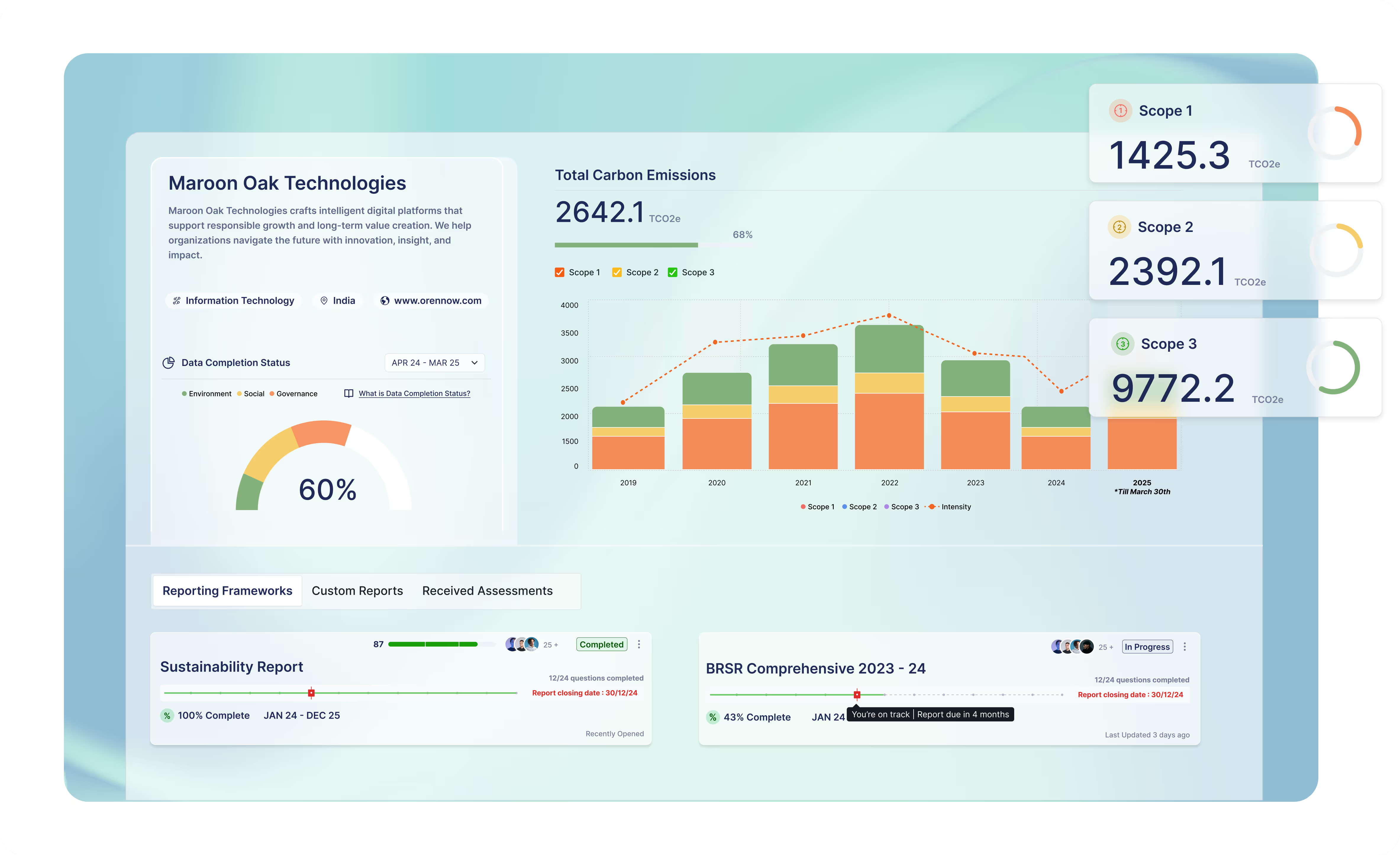Navigating Sustainability Risks: Their Impact on Stakeholder Decision-Making

Introduction to Sustainability and Stakeholder Decision-Making
In our previous discussion, we delved into the fundamentals of sustainability and the development of sustainability reporting in India. This article will expand on the concepts of stakeholders, sustainability risks, and how these risks influence the decision-making processes of stakeholders. Understanding the role of stakeholders is crucial, as various frameworks are crafted with their diverse needs in mind.
Stakeholders and Their Decision-Making Needs
The Companies Act of 2013 aims to safeguard the interests of various stakeholders, including top management, employees, customers, creditors, and suppliers. Directors are expected to act according to the Act, the company's Articles of Association, and the company's best interests, setting aside personal interests. However, in the realm of sustainability and sustainability reporting, the term 'stakeholder' encompasses a broader scope.
According to the GRI (Global Reporting Initiative) Standard GRI 101 - Foundation, stakeholders are:
"Entities or individuals who can reasonably be expected to be significantly affected by the reporting organization's activities, products, or services, or whose actions can impact the organization's ability to achieve its objectives. This includes those whose rights under law or international conventions provide them with legitimate claims against the organization."

Internal vs. External Stakeholders
Stakeholders can be divided into two categories:
- Internal Stakeholders: These include individuals or groups directly involved in the organization, such as employees and management.
- External Stakeholders: These are entities or individuals indirectly connected to the organization, such as customers, suppliers, and community members.
Each stakeholder group has distinct interests, which can be influenced by the organization's risks and risk management strategies. Stakeholders make decisions based on the information available to them. Regulatory frameworks strive to ensure that relevant information is accessible through various reporting procedures and practices.
Understanding Sustainability Risks
Traditionally, business risks fall into several broad categories:
- Strategic Risks
- Operational Risks
- Compliance Risks
- Reputational Risks
However, sustainability challenges have introduced new risk dimensions that organizations must navigate. Sustainability risks can be integrated into the Enterprise Risk Management (ERM) framework and should be treated with the same seriousness as other business risks. This integration involves engaging stakeholders to identify, assess, and mitigate these risks effectively.
Regulatory Recognition of Sustainability Risks in India
Globally, 67 stock exchanges have developed ESG (Environmental, Social, and Governance) guidance documents for listed companies. In India, the RBI's Discussion Paper on Climate Risk (2022) highlights the escalating importance of managing climate-related risks. It identifies several categories affected by climate-related risks:
- Credit Risk: Impacts on asset value and supply chains.
- Liquidity Risk: Increased need for liquidity due to extreme weather events.
- Operational Risk: Disruptions to business continuity and infrastructure.
This recognition underscores the need for a comprehensive risk management framework to address these emerging risks effectively.

Sustainability Risks in the Business Context
Business sustainability risks encompass environmental, socio-economic, and governance factors. Consider the Volkswagen emissions scandal as a case study. In 2015, Volkswagen was found guilty of manipulating diesel engine emissions tests. The fallout included significant sales declines, substantial fines, and a notable drop in shareholder value. This incident exemplifies how regulatory and reputational risks can impact a company's financial performance and operational integrity.
Another case involved BNY Mellon, which was fined by the SEC for misleading claims about its ESG (Environmental, Social, and Governance) quality reviews. This situation underscores the importance of transparency and accuracy in ESG reporting.
The Indian Corporate ESG Landscape
Indian companies across various sectors are increasingly recognizing their role in managing climate change risks. For instance:
- Cement Industry: ACC, Ambuja Cements, and Ultratech are investing heavily in sustainability initiatives.
- Manufacturing Sector: Companies like Mahindra & Mahindra, ITC Limited, and JSW Energy are setting ambitious sustainability targets.
- Service Sector: Infosys, TechMahindra, and Wipro are also advancing their climate change strategies.
These companies are setting targets for carbon neutrality and significant renewable energy investments. For example, Mahindra Group aims to become carbon neutral by 2040, and Tata Power targets 70% renewable energy by 2025. India itself aims to achieve 500 GW of renewable energy by 2030.
Addressing Controversies
The legal and regulatory landscape continues to evolve. For example, in the case of Satish Chandra Gupta vs. Assessing Officer, the Income Tax Appellate Tribunal provided relief to a taxpayer whose construction was delayed due to reasons beyond their control. Such cases highlight ongoing debates about compliance and exemptions, demonstrating the complexities of regulatory interpretations.
Summary and Conclusion
The landscape of business and sustainability is rapidly evolving. Stakeholder theories and sustainability reporting practices are adapting to new challenges. While sustainability risks are becoming increasingly apparent, they also present opportunities for organizations to innovate and improve their risk management strategies. The ongoing evolution of sustainability reporting reflects the need for continual adaptation to address emerging risks and stakeholder expectations effectively.
By staying informed about regulatory updates and adopting comprehensive ESG practices, organizations can better navigate the complexities of sustainability and stakeholder decision-making.
Latest Blog Posts
Dive into our blog for insights on making your organization more sustainable.
Sustainability Simplified
Wherever you are in your sustainability journey, we help you advance with confidence.
Schedule a Call



.avif)

